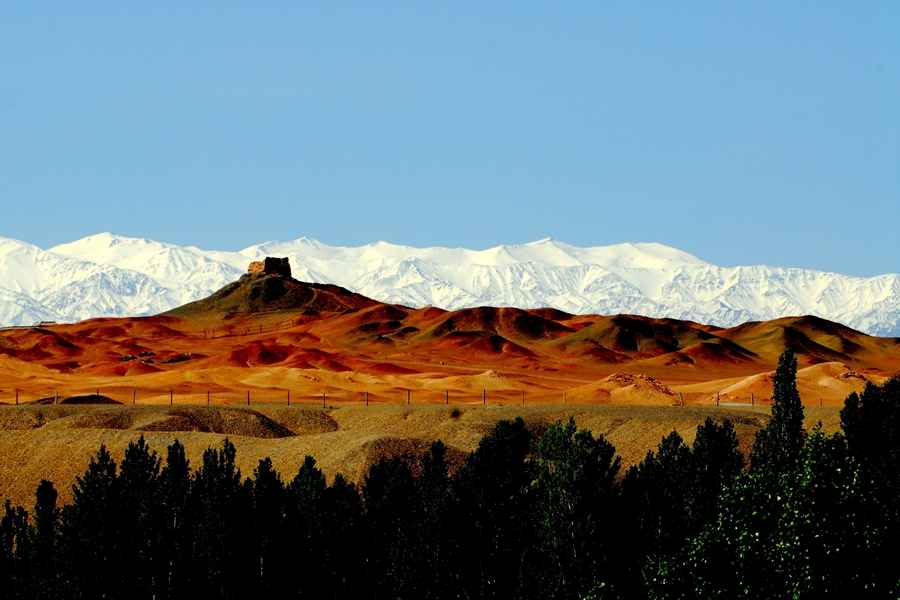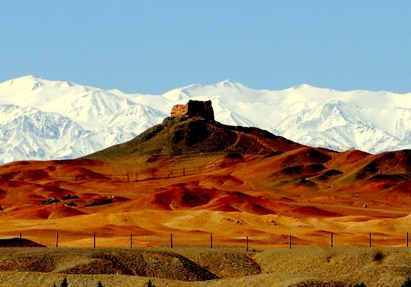Yangguan Pass
 0 Comment(s)
0 Comment(s) Print
Print E-mail China.org.cn, August 11, 2016
E-mail China.org.cn, August 11, 2016

Yangguan Pass in Dunhuang [Photo provided to China.org.cn]
Yangguan Pass (阳关), also known as the Southern Pass, sits 75 kilometers southwest of Dunhuang, and was originally built by Emperor Wu in the Han Dynasty as one of the two most important passes protecting Dunhuang from invasion from the west (the other pass is Yumenguan Pass.
In modern times, Yangguan is quite ruined with great sections buried in the shifting sands. However, at its heyday, this system of beacon towers and walls marked the western border of the Han Empire. Again, today, there are hardly any walls in sight, the only visible sections being the foundations of some of the walls. To the south of the mound is an expanse where one may find millions pieces of broken tile over an area of twenty square kilometers, some of the last evidence of civilization here.
In Chinese, Yang means the south. Because it is lying to the south of Yumenguan Pass, people gave its name - Yangguan Pass. Together with Yumenguan Pass, it has also witnessed the prosperity of Silk Road in the past times. In Tang Dynasty (618 - 907), it welcomed the glorious return of Xuan Zang, a great monk who pilgrimaged to the west in search of Buddhist scriptures. Many Chinese get to know this important pass mainly from the poem Farewell to Yuaner to Take Office in Anxi, written by Wang Wei, a famous poet in Tang Dynasty. From the last two lines "Oh, my friend, I sincerely entreat you to have another cup of wine; you will see no more friends west out of the Yangguan Pass.", we can see the Yanguan Pass has always been the place of desolation and sadness since ancient times. In the Song (960 - 1279) and Ming (1368 - 1644) Dynasty, because of the decline of the Silk Road, the Pass was generally forgotten by people.
For years and years, the flowing dunes have eroded this Great Wall pass into a broken beacon tower, standing alone in the boundless desert. It measures 15.4 feet high and 8.7 yards wide. Around the relic, you cannot even see the dismantled walls, because they were all eroded by the wind and buried under earth. South to the pass, there is a "Curio Beach". It is a small valley where you can find lots of dynasties' tiles, coins, weapons, and decorations.
Today's Yangguan Pass is not only a historic place of recalling the remote past, but also a hometown of tasty grapes. Come here, appreciate the beauty of vicissitudes of the Great Wall, enjoy the natural view combined by oasis, desert and snow peaks, and taste the juicy fruits.





Go to Forum >>0 Comment(s)